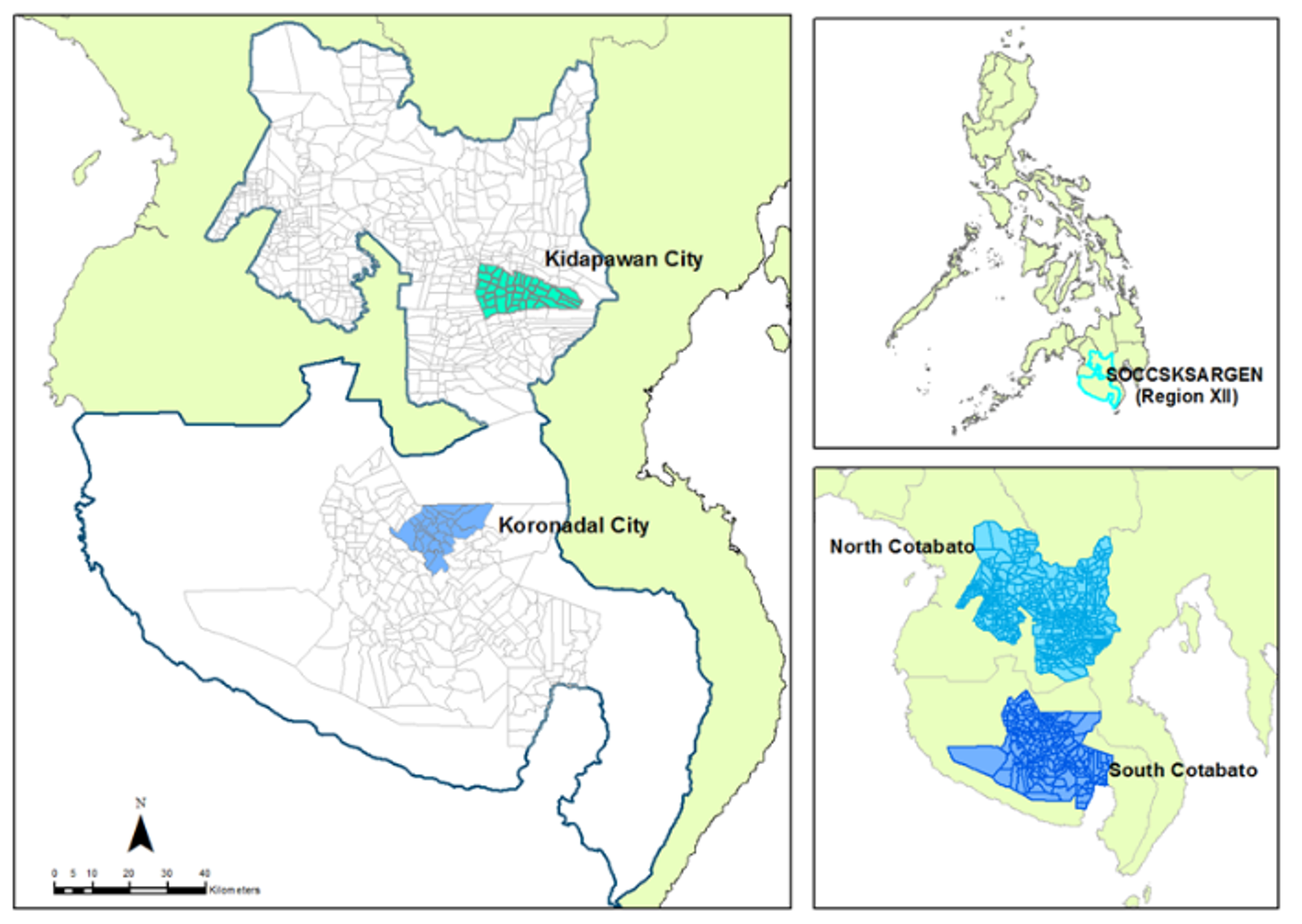VOLUME 18 (Supplement)

SciEnggJ 18 (Supplement) 086-106
available online: 14 May 2025
DOI: https://doi.org/10.54645/202518SupLCP-37
*Corresponding author
Email Address: llsabino@up.edu.ph
Date received: 20 February 2025
Date revised: 24 April 2025
Date accepted: 05 May 2025
ARTICLE
Policy implications of drought's cascading effects on sustainable livelihoods and natural resource management in South-Central Mindanao, Philippines
Forestry and Natural Resources, University of the Philippines
Los Baños
2Institute of Biological Sciences, College of Arts and Sciences,
University of the Philippines Los Baños
3Institute of Statistics, College of Arts and Sciences, University of
the Philippines Los Baños
Drought, a severe issue exacerbated by climate change, is a pressing concern in South-Central Mindanao, Philippines. This study examines the impact of the 2015-2016 drought events on livelihood and natural resource management in Koronadal and Kidapawan cities. It aims to highlight the pressing necessity for policy interventions to address the cascading effects of drought in local communities. A comprehensive research method was conducted between July 2017 and February 2018, including surveys, focus groups with farmers, and a literature review. The findings revealed that the 2015–2016 drought, a severe seven-month dry period, severely impacted farmers, leading to significant crop losses and financial hardships. Depleting water supplies resulted in lower agricultural yields, increased food poverty, and detrimental ecological impacts. Crop growth and cattle mortality were impeded by reduced soil moisture, increasing pest infestations, bushfires and wildfires, and soil cracking. The drought also increased the cost of agricultural supplies, putting farmers under financial stress and forcing them to take out loans and accumulate more debt. Some resorted to unsustainable practices like charcoal making in Koronadal City, while others in Kidapawan City suffered from food poisoning after consuming wild cassava.
Drought impacts the environment and economy, leading to social issues like hunger and migration for alternative income sources. Education is compromised, and community involvement in crafting and implementing contextually relevant policies becomes crucial. The policies holistically encompass environmental, economic, and social dimensions, preparation before drought events, management and survival during drought, and recovery after drought. Immediate relief and long-term strategies are essential to safeguard sustainable livelihoods and enhance the resilience of natural resource management in recurring drought events. Key policy recommendations include formulating comprehensive drought management plans and policies that promote sustainable agriculture/agroforestry, establishing effective water management systems, diverse livelihoods, drought-tolerant agricultural practices, and strengthening community-based disaster risk reduction efforts. It is crucial to stress the need for diverse livelihoods, as this adaptability is critical to resilience in drought. This study underscores the pressing need for policy intervention due to vulnerability in livelihood, food security, and water resource management since drought has cascading effects on agriculture and communities. Policymakers and other agencies/organizations involved in drought management in the South-Central Mindanao region are crucial in developing and implementing policies.
© 2026 SciEnggJ
Philippine-American Academy of Science and Engineering